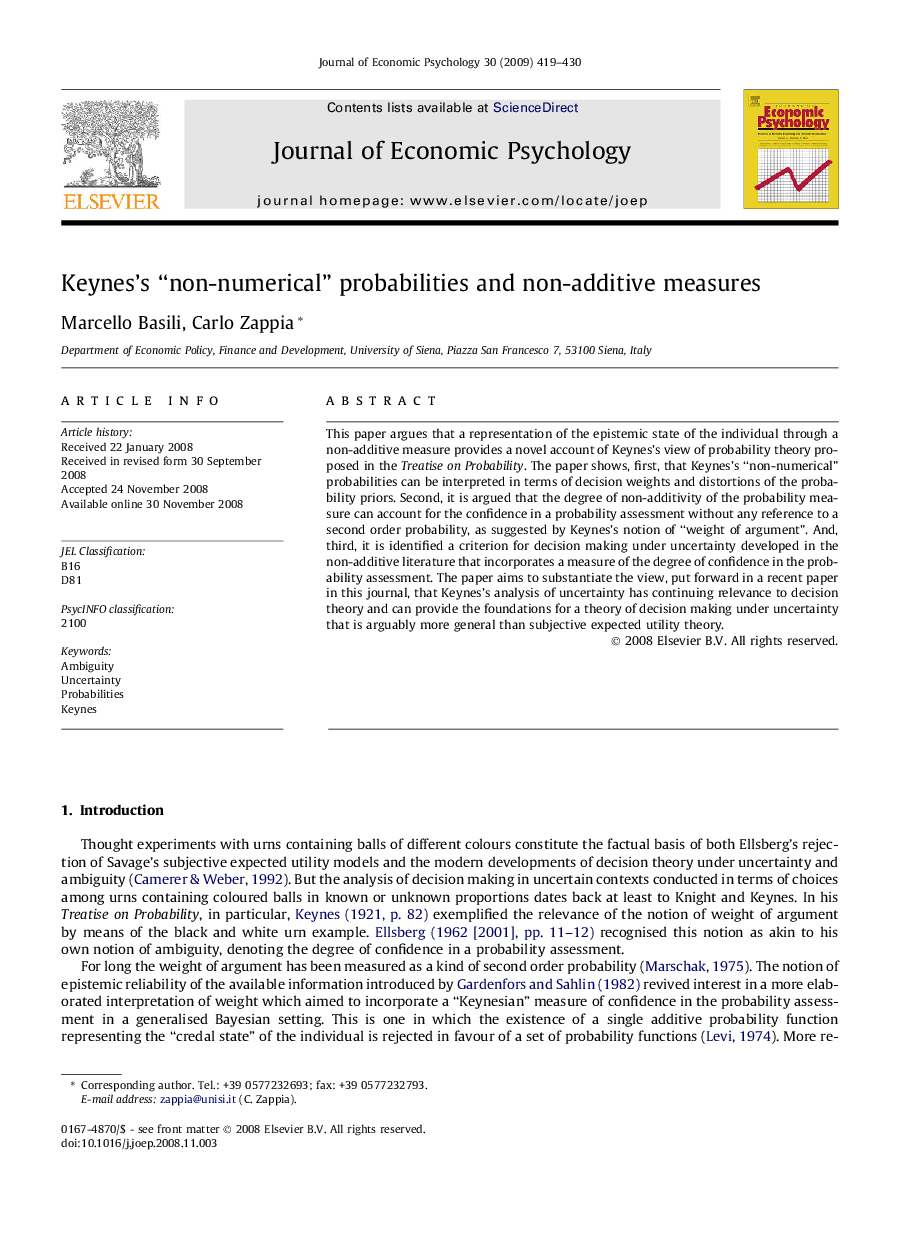| Article ID | Journal | Published Year | Pages | File Type |
|---|---|---|---|---|
| 885324 | Journal of Economic Psychology | 2009 | 12 Pages |
This paper argues that a representation of the epistemic state of the individual through a non-additive measure provides a novel account of Keynes’s view of probability theory proposed in the Treatise on Probability. The paper shows, first, that Keynes’s “non-numerical” probabilities can be interpreted in terms of decision weights and distortions of the probability priors. Second, it is argued that the degree of non-additivity of the probability measure can account for the confidence in a probability assessment without any reference to a second order probability, as suggested by Keynes’s notion of “weight of argument”. And, third, it is identified a criterion for decision making under uncertainty developed in the non-additive literature that incorporates a measure of the degree of confidence in the probability assessment. The paper aims to substantiate the view, put forward in a recent paper in this journal, that Keynes’s analysis of uncertainty has continuing relevance to decision theory and can provide the foundations for a theory of decision making under uncertainty that is arguably more general than subjective expected utility theory.
